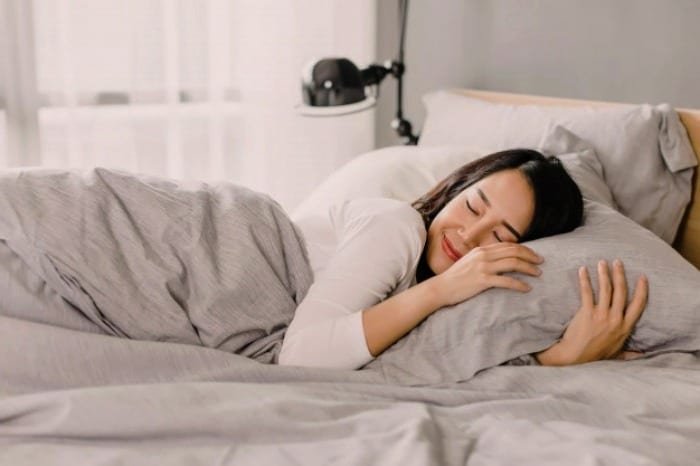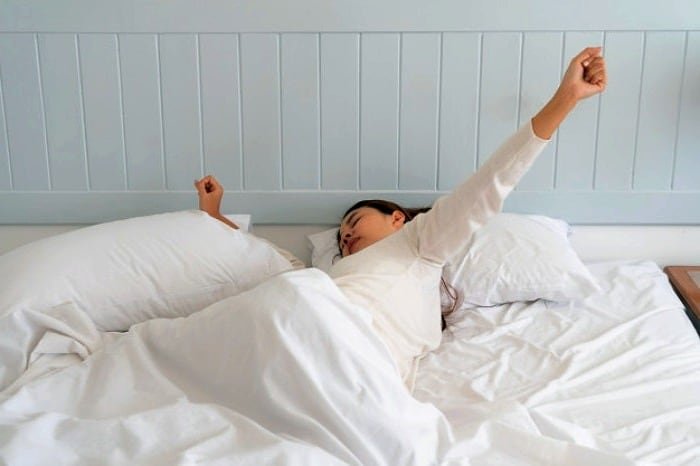Common and Incorrect Beliefs We Have About Sleep
You probably know that having a cupof coffeein the evening disrupts your sleep, and this is well-known. However, there are also misconceptions about insomnia that we should explore. In this section of health and wellnessSelMagzwe aim to share ten misconceptions aboutinsomniawith you.
1. Sleeping is very beneficial for those withdepressionMany of us have heard that if we suffer from depression, we should sleep more to stop thinking too much, but recent research shows that if severely depressed individuals stay awake for at least one night, they experience improvement. This is due to the shock it brings to their internal biological clock, and likely afterward, they won’t have trouble sleeping at night.
2. The body adjusts to

sleep deprivationIf you’re trying to cut down on your sleep, you should reconsider this approach. If you’ve been reducing your sleep hours for several nights, you’re likely to feel sleepier during the day. Laziness andsleepiness
during the day happen without enough sleep at night, and the body never truly gets used to it; rather, its productivity decreases. Experts recommend sleeping between 7 to 9 hours at night. Ideally, you should go to bed between 8 PM and midnight.3. Restlessness and various body movements indicate poor sleepIf at night, when you are asleep, your movements are very minimal, you likely have healthy sleep. For example, it is natural for your leg to move at night; however, if you have the following conditions, it’s best to seek solutions:
Severe and sudden body movements
Sleepwalking
- Rough jerking during the night
- Frequent awakenings during night sleep
- Teeth grinding
- during sleep
- 4. Insomnia is fundamentally due to your mental stateInsomnia can be influenced by

stress
and your psychological state, but physical conditions can also be a factor for insomnia. Generally, women experience insomnia more than men due to various physical issues like heart problems, strokes, or even obesity. Additionally, conditions such as restless leg syndrome,hormonal changes, thyroid issues, and neurological disorders can also cause insomnia at night. Some women may experience nighttime insomnia due to menstrual cycle disruptions or menopause.5. Waking up in the middle of the night means your useful sleep has been interruptedSometimes you might find it happens that you wake up one or two times during the night and have difficulty falling back asleep. Some people prefer to stay in bed and try to sleep again; however, experts suggest that in such cases, it’s better to get out of bed and do something that relaxes you. Do not return to bed for 15 to 20 minutes. It’s best not to think about anything during this time, nor use electronic devices. You may drink a little water instead.
6. You should go to bed at the same time every night and wake up at the same time every day
Planning your sleep is certainly very important, but experts emphasize more on your waking time. This means you should aim to wake up around the same time each morning. Most importantly, it’s best to go to bed at the same time each night. On the other hand, it’s not possible to set a specific bedtime for everyone, as people’s bodies differ, and there’s no need to force yourself to sleep at 10 PM or wake up at 7 AM.

7. Insomnia is just part of having difficulty sleeping
Difficulty falling asleep is related to insomnia problems. This disorder can come with other symptoms. For example, frequent awakenings, waking up early, and difficulty falling back asleep, along with feeling groggy in the morning. If you have all these symptoms, it’s best to see a specialist and quickly address your insomnia problem.
8. Drinking a cup of coffee at the end of the night disrupts sleep
Coffee lovers need not worry, as research shows no relationship between consuming coffee 4 hours before sleep and insomnia. Just be sure not to drink your coffee too strong.
9. If you can’t sleep well at night, make up for the sleep on weekends
Some people believe that because they don’t get enough sleep during the week, they should compensate and sleep more on the weekends, but scientific evidence does not support this. It’s better to wake up at a consistent time each day.

10. Children suffer from insomnia
This belief, like all the previous ones, is incorrect. Children can experience insomnia. The causes of insomnia in children are similar to those in young people and can arise from physical conditions or psychological factors.
If you read in previous articles on SelMagz, the signs indicating that your child may have insomnia include:
Feeling constantly tired.
Making excuses to avoid going to bed.
- Taking a long time to fall asleep.
- Always wanting to get out of bed and asking for something.
- Often waking up at night or staying awake the whole night.
- Not waking up easily in the morning.
- Usually trying to change their sleep time every day.
- Sleeping
- The benefits of sleeping for depressed individuals







